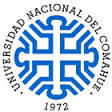JavaScript is disabled for your browser. Some features of this site may not work without it.
Mostrar el registro sencillo del ítem
| dc.creator | Ladio, Ana H. | |
| dc.date | 2025 | |
| dc.date.accessioned | 2025-05-27T15:55:22Z | |
| dc.date.available | 2025-05-27T15:55:22Z | |
| dc.identifier.uri | https://rdi.uncoma.edu.ar/handle/uncomaid/18724 | |
| dc.description.abstract | In addressing the question, “Does local, national, and international governance have a primary role in shaping the resilience of local ecological knowledge (LEK)?”, I first emphasize the importance of ethnobiology in highlighting effective local biodiversity governance practices employed by Indigenous Peoples and local communities (IPLCs). The sustainable management of these territories, showcases the deep connection between communities and their Local ecological knowledge (LEK), which has been vital in adapting to socio-environmental challenges and foster- ing sustainable practices. Case studies from Northern Patagonia, Argentina, illustrate how these communities have largely adapted to new circumstances on their own, despite ongoing challenges. However, despite its importance for multi-level governance, the integration of IPLCs into the decision-making processes of national and international institutions, especially those responsible for policy, remains inadequate. For example, national governments have often played a marginal or even counterproductive role in strengthening LEK resilience. This is partly due to a failure to foster social cohesion after a long history of societal whitening, which hinders empathy towards Indigenous Peo- ples. I propose a more inclusive approach to knowledge co-production, grounded in robust ethnobiological evidence. While this is not a complete solution, it can contribute to greater appreciation and empathy for IPLCs. This would foster collaborative efforts, uniting IPLCs, scientists and policymakers to achieve transformative governance where LEK is genuinely valued and integrated into decision-making processes at all levels. | es_ES |
| dc.format | application/pdf | es_ES |
| dc.format.extent | pp.1-6 | es_ES |
| dc.language | eng | es_ES |
| dc.publisher | Springer Nature | es_ES |
| dc.relation.uri | https://doi.org/10.1186/s13002-024-00751-3 | es_ES |
| dc.rights | Atribución-NoComercial-CompartirIgual 4.0 | es_ES |
| dc.rights.uri | https://creativecommons.org/licenses/by-nc-sa/4.0/ | es_ES |
| dc.source | Journal of Ethnobiology and Ethnomedicine (2025) Vol. 21 núm. 9 | es_ES |
| dc.subject | Resilience | es_ES |
| dc.subject | Knowledge systems | es_ES |
| dc.subject | Sustainable solutions | es_ES |
| dc.subject | Patagonia | es_ES |
| dc.subject.other | Ciencias de la Tierra y Medio Ambiente | es_ES |
| dc.title | Transformative governance based on local ecological knowledge is impossible without genuine inclusion of indigenous peoples and local communities in NW Patagonia | es_ES |
| dc.type | Articulo | es |
| dc.type | article | eu |
| dc.type | acceptedVersion | eu |
| dc.description.fil | Fil: Ladio, Ana H. Universidad Nacional del Comahue. Centro Regional Universitario Bariloche; Argentina. | es_ES |
| dc.description.fil | Fil: Ladio, Ana H. Consejo Nacional de Investigaciones Científicas y Técnicas. Instituto de Investigaciones en Biodiversidad y Medioambiente; Argentina. | es_ES |
| dc.cole | Artículos | es_ES |



